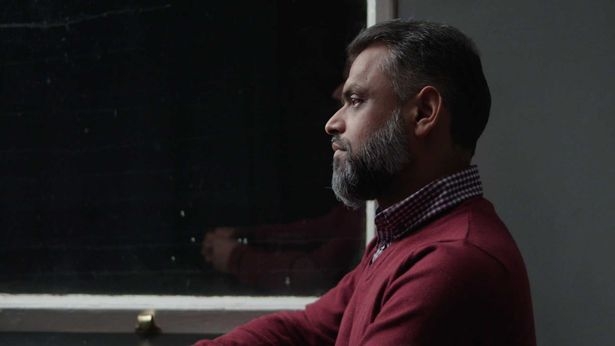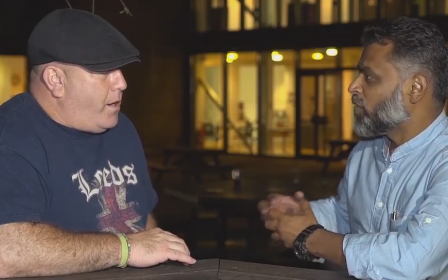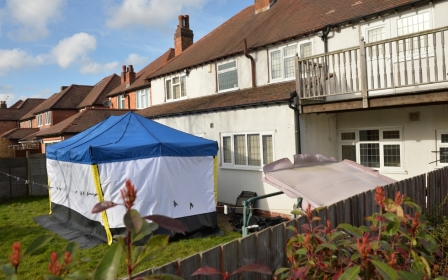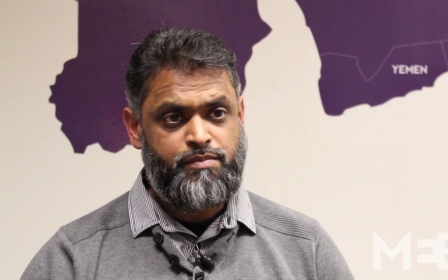The Confession: Moazzam Begg in his own words

Moazzam Begg is a man who has been described by his critics as a jihadist al-Qaeda sympathiser and by his supporters as the Malcolm X of Britain. Whatever you think of him and wherever you stand in the post "war on terror" political spectrum, it goes without saying that Begg is a man with a horrific story to tell.
When I heard that a film entitled The Confession: Living the War on Terror had been made about Begg’s life, I had some reservations. These concerns were strengthened when Begg himself told me that the film would be an interview of him telling his story, coupled with the occasional cut away to relevant images and footage. At the time I felt an action thriller or drama would have been more apt for his story.
I also wondered how different would Begg's "confessions" be to those already revealed in his award-winning book Enemy Combatant, or the many public lectures and interviews he has given about his experiences in Bosnia, Afghanistan and Syria, his incarceration at Bagram, Guantanamo Bay, as well as at HMP Bellmarsh.
With all this in mind, I still went to see The Confession in great anticipation because Begg’s story is an extraordinary tale of hardship and patience. And with the talents of director Ashish Ghadiali behind the camera it was bound to be a must-see experience.
Racism, identity and conflict
The majority of the film is set in a dark interview room with Begg sitting at an angle while speaking to the camera. As the sole narrator in the film, he begins by describing his early experiences of racism growing up in Birmingham, questioning his "British" identity, and seeking out different social groups, until he arrives at full contentment with his Muslim identity, which Begg said “transcended nationality, ethnicity and borders”.
Begg then covers the period between the first Gulf War, right up to the war in Syria, addressing how the war in Bosnia, Chechnya, 9/11 and how he was personally caught up in the war on terror in Afghanistan and Iraq. He describes his kidnapping and incarceration in Pakistan, detention in Afghanistan's Bagram and then Guantanamo Bay; and his mental state while in solitary confinement, as well as 7/7 and the policy shift in the UK towards countering "violent extremism".
As someone who is part of the 'war on terror generation,' everything that Begg said resonated with me
As someone who is part of the "war on terror generation," everything that Begg said resonated with me – the wider sentiments of a unified Muslim Ummah (community) in light of the wars and oppression raging in the Muslim majority world, the stigmatisation at home due to the religious and political views I hold, and witnessing injustices being carried out by the British government.
I was in year nine aged 13 the day 9/11 happened, and 17 when 7/7 took place. I remember those events clearly and how the environment in my hometown of Bedford, in upper school and later university, changed after those incidents.
Hence, it was challenging at times to objectively analyse the cinematography of The Confession without focussing too much on Begg’s oratory excellence.
Up close and personal
The production mastery of The Confession is best appreciated in a cinema. The quality of the audio with Begg on a big screen allows you to analyse his every facial expression, and the powerful imagery collectively contributes to an intense cinematic experience.
Furthermore, the well-timed inclusion of Begg’s late father, Azmatullah Begg, and his wife Zaynab Begg, gives The Confession a personal touch which re-emphasises Begg’s insistence on how important his family was throughout his many tribulations.
However, I was not so fond of the random questioning by an unknown person who only started grilling Begg towards the end of the film about his views on al-Qaeda and the rules of engagement. The questioning by the film’s anonymous "interrogator" was not exactly a "grilling" by any standard; Begg seemed unaffected in being quizzed, after all - he has dealt with the CIA, FBI and MI5 many times.
It would also be a gross injustice not to mention “Andrew” – a British secret service agent who was present every time Begg was interrogated or arrested in the UK, Turkey and Afghanistan. Begg describes Andrew as someone who personified the quintessential villain from a thriller – the spooky unknown character with sinister intentions.
First of its kind
The powerful images and footage and the dark gloomy interview room reinforce the notion that Begg’s story is a "confession" being told under the context of incarceration, torture and war.
Indeed, despite spending 95 minutes watching a man speaking to camera in a dark room, The Confession held my attention throughout. That said, the production, directing, and most importantly, Begg’s mastery in storytelling made The Confession a first-of-its-kind.
The theories, ideologies and concepts that Begg discusses in The Confession are of utmost importance to journalists, policymakers and activists who want to understand the toxic outcome of the war on terror
On a wider political note, the theories, ideologies and concepts that Begg discusses in The Confession are of utmost importance to journalists, policymakers and activists who want to understand the toxic outcome of the war on terror. In fact, a lot of it will come as bitter home truths for British politicians, especially those that championed the war in Iraq. But the reality is that since the inception of the war on terror, the world has only become a far more dangerous place.
Begg’s critics - who consist of the right-wing press, neoconservative pundits and ardent secularists - will never comprehend their enemy’s struggles, be it the humiliation of being stripped naked, sexually assaulted, psychologically and physically tortured, falsely imprisoned, or being taken away from family on numerous occasions.
Begg’s critics, though quick to remind the British public about his political and religious views and his time in Bosnia, Afghanistan and Syria, seem to forget that this is a man who has not committed or been found guilty of a single crime.
Rather, to many Muslims in the UK and beyond, Begg is seen as a hero, a defiant individual defined by his struggles, patience and compassion, as well has his forthrightness in holding accountable the pro-war establishment.
If I had to recap The Confession in once sentence, I would conclude that it is a film less to do with cinematic experience and more to do with the story itself, and most importantly, the storyteller.
The Confession is being shown in cinemas and theatres across the UK. To find a screening near you, please visit: http://theconfessionfilm.com/index.html
Stay informed with MEE's newsletters
Sign up to get the latest alerts, insights and analysis, starting with Turkey Unpacked
Middle East Eye delivers independent and unrivalled coverage and analysis of the Middle East, North Africa and beyond. To learn more about republishing this content and the associated fees, please fill out this form. More about MEE can be found here.




